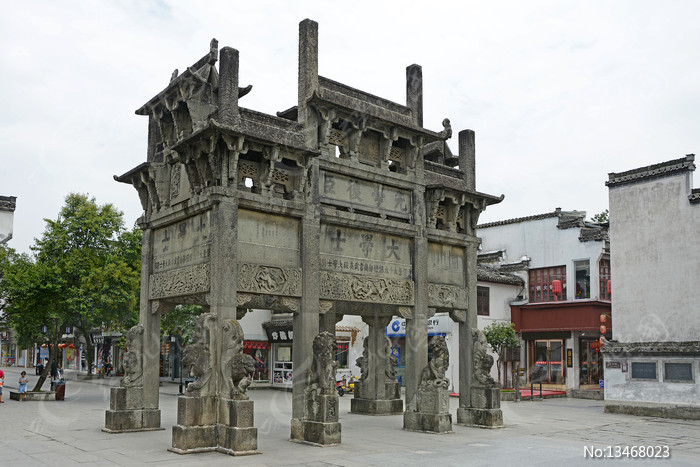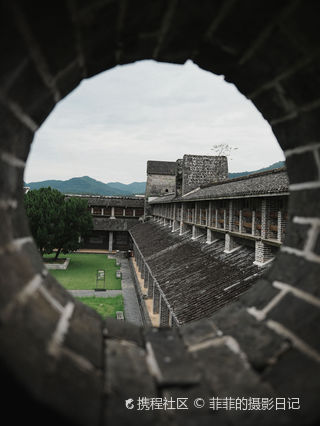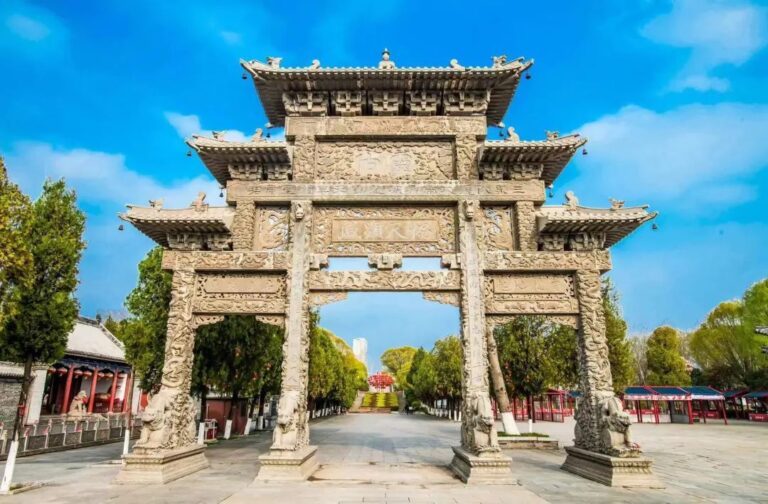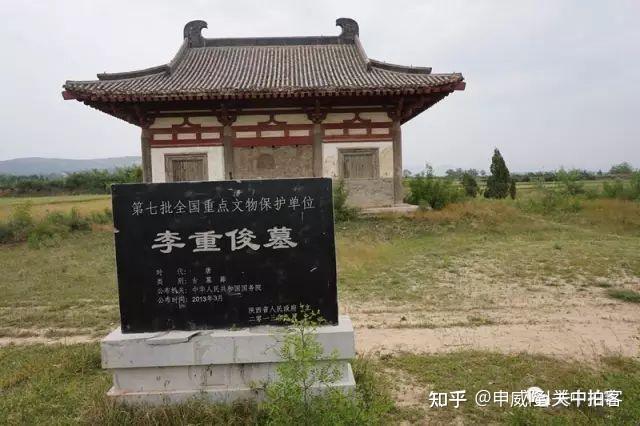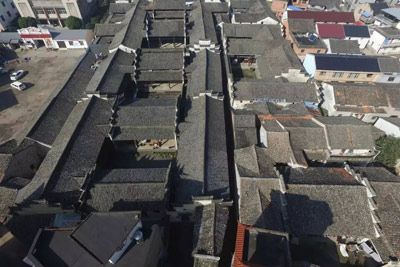Experience the Architectural Wonders of Yongzhou Jianyantou Zhoujia Dayuan Gujianzhuqun
An Essential Guide to Visiting Yongzhou Jianyantou Zhoujia Dayuan Gujianzhuqun
In This Guide
- An Essential Guide to Visiting Yongzhou Jianyantou Zhoujia Dayuan Gujianzhuqun
- The Rich History of Yongzhou Jianyantou Zhoujia Dayuan Gujianzhuqun
- Main Highlights: What to See at Yongzhou Jianyantou Zhoujia Dayuan Gujianzhuqun
- Planning Your Visit: A Practical Guide
- Tickets, Hours, and Booking
- How to Get There
- Local Cuisine and Accommodation
- Frequently Asked Questions
- Final Thoughts on Your Trip
Nestled in the scenic landscapes of Yongzhou, the Zhou Family Mansion, also known as the Jianyantou Zhoujia Dayuan Gujianzhuqun, stands as a remarkable testament to China’s rich cultural heritage. This ancient architectural complex, established during the Ming Dynasty in 1550 and refined through the Qing Dynasty until 1904, is a splendid representation of traditional southern Chinese architecture, showcasing the craftsmanship and familial devotion of the Zhou lineage.
Spanning over 120 acres, the mansion is a sprawling collection of six grand courtyards, including the Old Courtyard, New Courtyard, and the iconic Red and Black Gate Towers. Each structure is emblematic of the era’s architectural elegance, adorned with intricate carvings and traditional motifs that reflect the historical significance of the Zhou family as descendants of the esteemed Song Dynasty philosopher, Zhou Dunyi.
Designated as a National Key Cultural Relic Protection Unit, the mansion offers a unique glimpse into the lifestyles of its ancestral inhabitants, many of whom continue to reside within its walls today. Visitors can wander through its serene pathways, absorbing the tranquil atmosphere and the echoes of history that linger in the air. Whether you’re an architecture enthusiast, a history buff, or simply seeking a peaceful retreat into the past, the Zhou Family Mansion is an undiscovered gem that promises to enchant and inspire.
As you explore this remarkable site, you’ll find not only stunning architecture but also the vibrant culture and traditions of the Yongzhou region, making it a must-visit destination for those looking to delve deeper into the heart of China’s historical narrative.
The Rich History of Yongzhou Jianyantou Zhoujia Dayuan Gujianzhuqun
The Yongzhou Jianyantou Zhoujia Dayuan Gujianzhuqun, or Zhou Family Courtyard, is a remarkable testament to Chinese architectural heritage, nestled in the picturesque village of Jianyantou in Yongzhou, Hunan Province. Its origins trace back to the Ming Dynasty during the reign of Emperor Jiajing, specifically in 1550, and it continued to evolve through the Qing Dynasty, reaching completion in 1904. This architectural complex is not only significant for its historical context but also for its embodiment of familial lineage and cultural legacy, being the ancestral home of the descendants of the renowned Song Dynasty philosopher, Zhou Dunyi.
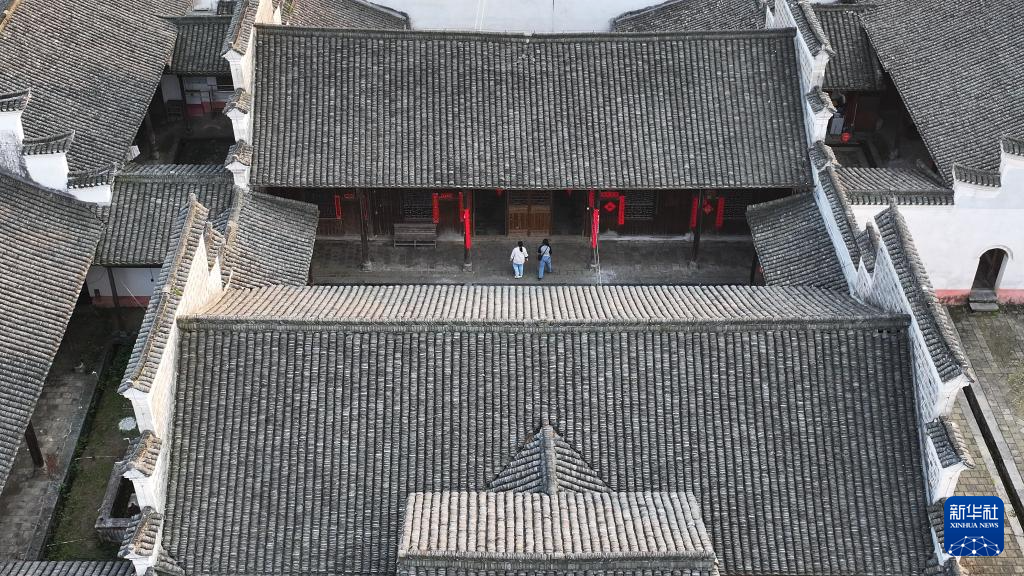
Yongzhou Jianyantou Zhoujia Dayuan Gujianzhuqun.
The Zhou Family Courtyard showcases a unique layout resembling the Big Dipper constellation, consisting of six major residential units: the Old Courtyard, New Courtyard, Hongmen Tower, Heimen Tower, Ziyan Mansion, and the courtyards of the four major families. Altogether, the complex spans over 120 acres with a construction area of approximately 45,000 square meters, making it one of the largest and most comprehensive ancient residential groups in Southern Hunan.
Throughout its history, the Zhou Family has played a pivotal role in local culture and education. The family prioritized agricultural development and the importance of education, establishing private schools within the courtyards to educate their descendants. This focus on learning contributed to the emergence of numerous scholars, including notable figures such as Zhou Xisheng, who served as a minister during the Qing Dynasty, and Zhou Chongfu, who made significant contributions to military logistics.
The architectural style of the Zhou Family Courtyard is a splendid reflection of traditional Chinese aesthetics, featuring intricate wood carvings, stone sculptures, and elaborate brickwork that highlight the craftsmanship of the era. The decorations often include motifs of lotus flowers, symbolizing purity and nobility, which echo the philosophical teachings of Zhou Dunyi, who famously extolled the virtues of the lotus as a metaphor for moral integrity.
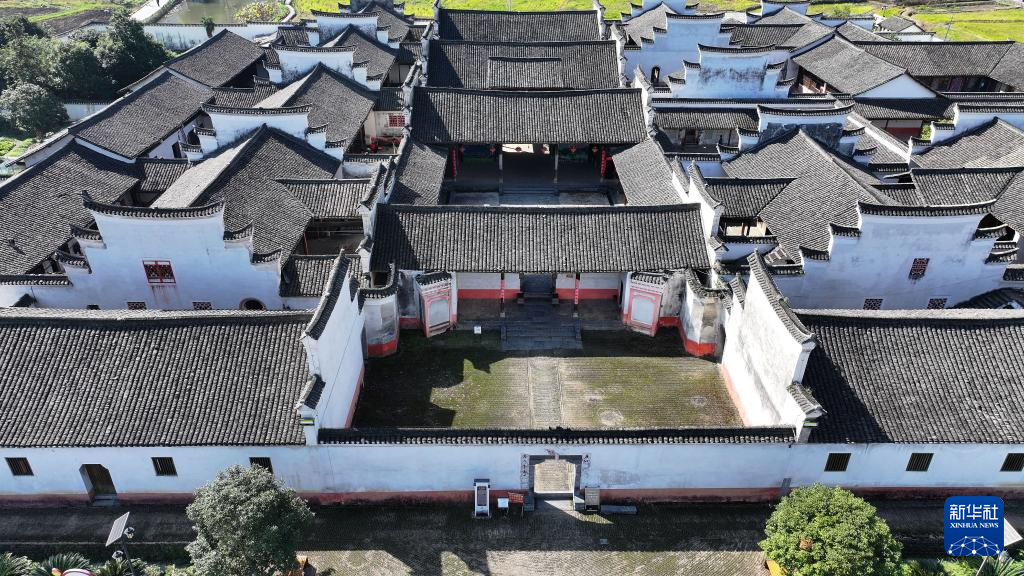
Yongzhou Jianyantou Zhoujia Dayuan Gujianzhuqun.
In recognition of its cultural and historical significance, the Zhou Family Courtyard was designated as a national key cultural relic protection unit in 2007 and has since been acknowledged as one of the “Top Ten Historical and Cultural Villages” in Yongzhou. Efforts to preserve and promote the site have been ongoing, with recent developments aimed at enhancing visitor experience and accessibility, including the establishment of tourist facilities and improved signage.
Today, the Zhou Family Courtyard stands not only as a monument to the architectural brilliance of the Ming and Qing Dynasties but also as a living embodiment of the rich cultural heritage of the Zhou clan and the broader historical narrative of the region. Visitors are afforded a unique glimpse into the past, where the echoes of history resonate through the stone walls and courtyards, making it an essential stop for anyone interested in the intricate tapestry of Chinese history and culture.
Main Highlights: What to See at Yongzhou Jianyantou Zhoujia Dayuan Gujianzhuqun
Nestled within the picturesque landscape of Yongzhou, the Zhou Family Courtyard (周家大院) stands as a testament to the architectural grandeur of the Ming and Qing dynasties. This ancient village complex, which began construction in 1550 and completed in 1904, spans over 120 acres and boasts an impressive 45,000 square meters of building space. Here are the key highlights that make this site a must-visit:
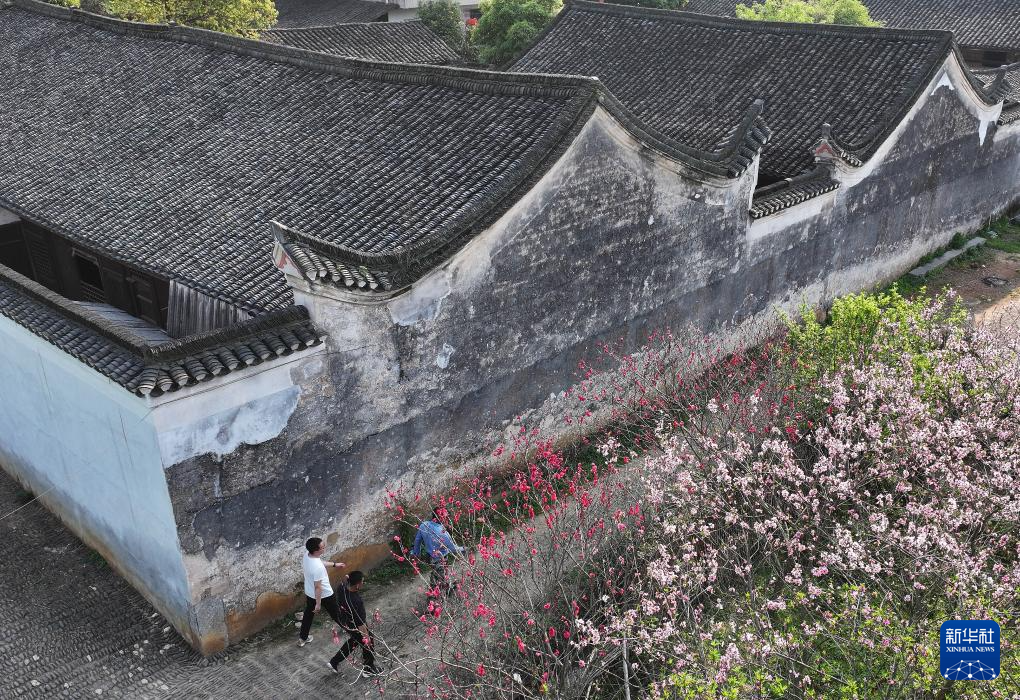
Yongzhou Jianyantou Zhoujia Dayuan Gujianzhuqun.
-
Architectural Marvel: Comprising six distinct residential compounds, including the Old Courtyard, New Courtyard, Red Gate Building, Black Gate Building, and the magnificent Ziyan Mansion, the layout of the Zhou Family Courtyard resembles the constellation of the Big Dipper, symbolizing harmony and auspiciousness in traditional Chinese culture.
-
Cultural Heritage: Recognized as a National Key Cultural Relics Protection Unit, the complex is steeped in history and has been home to generations of scholars and officials. Notable descendants of the Zhou family include prominent figures in Chinese history, making the site a living museum of Confucian ideals and family legacy.
-
Exquisite Craftsmanship: The courtyards feature intricate wood carvings, stone engravings, and decorative elements that showcase the artistic mastery of ancient Chinese artisans. Each building is adorned with motifs that reflect the family’s reverence for nature and the philosophical teachings of Confucianism.
-
Natural Surroundings: The site is beautifully situated against a backdrop of mountains and rivers, providing a serene environment that enhances its historical significance. The natural landscape complements the architectural beauty, making it a peaceful retreat for visitors.
-
Community Living: Unlike many other historical sites, the Zhou Family Courtyard is still inhabited by descendants of the original builders. This continuity of life adds a unique layer of authenticity, allowing visitors to experience the vibrant community spirit and traditional customs that still thrive here.
-
Accessibility and Amenities: Recently upgraded to meet AAAA-level scenic area standards, the site now features improved facilities, including signage, visitor centers, and restrooms. This makes it easier for travelers to explore and appreciate the grandeur of this historical treasure.
-
Local Cuisine: While visiting the Zhou Family Courtyard, be sure to indulge in local culinary delights such as Yongzhou Blood Duck and Dong’an Chicken, which reflect the rich flavors of Hunan cuisine.
-
Visitor Experience: Allocate 1-2 hours to wander through the courtyards and soak in the atmosphere. The site offers a glimpse into the past, where the elegance of ancient architecture meets the enduring essence of family heritage.
The Zhou Family Courtyard is not just a destination; it is a journey into the heart of Chinese history and culture, making it an essential stop for any traveler exploring the rich tapestry of Yongzhou.
Planning Your Visit: A Practical Guide
Practical Guide to Yongzhou Jianyantou Zhoujia Dayuan Gujianzhuqun
Nestled in the scenic landscape of Yongzhou, Hunan Province, the Zhou Family Mansion, known as Zhoujia Dayuan, is an architectural gem that reflects the region’s rich history and cultural heritage. As you prepare for your visit, this practical guide will provide essential information to make the most of your experience.
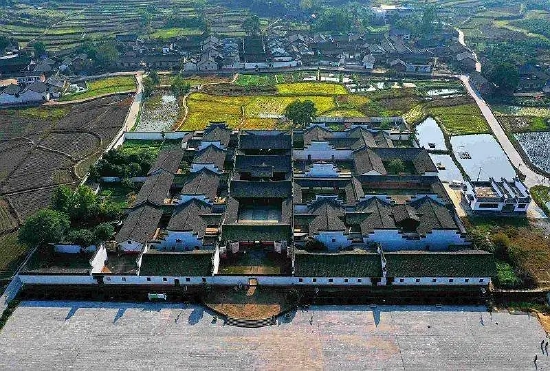
Yongzhou Jianyantou Zhoujia Dayuan Gujianzhuqun.
Getting There
By Air: The nearest airport to Yongzhou is the Yongzhou Lingling Airport, which offers flights from major cities in China. From the airport, you can take a taxi or pre-arranged transport to reach the Zhou Family Mansion.
By Train: Yongzhou is accessible by train, with services connecting it to larger cities such as Guilin and Changsha. Upon arriving at Yongzhou Railway Station, you can take a local bus or taxi to reach the mansion.
Public Transport: Once in Yongzhou, you can take bus routes 301 or 306 to the “Municipal Square” stop. From there, transfer to a special bus heading to Zhoujia Dayuan. The entire journey takes about 40 minutes and costs around 8 RMB.
Opening Hours and Admission
The Zhou Family Mansion is open daily from 8:30 AM to 5:30 PM. Admission fees vary; occasionally, there may be no charge, but when a fee is collected, it typically ranges from 10 to 30 RMB. It’s wise to check in advance regarding any potential fees.
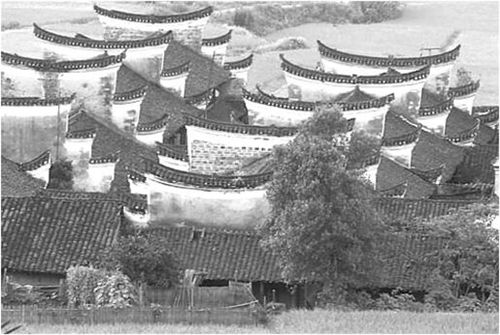
Yongzhou Jianyantou Zhoujia Dayuan Gujianzhuqun.
Suggested Duration of Visit
Plan to spend approximately 1-2 hours exploring the mansion and its surrounding area. This timeframe allows you to appreciate the intricate architectural details, tranquil gardens, and the overall ambiance of the ancient complex.
What to Expect
The Zhoujia Dayuan is a sprawling complex that encompasses six distinct residential courtyards, each showcasing traditional architectural styles from the Ming and Qing dynasties. Key features include:
- Historical Significance: Established in 1550 and completed in 1904, the mansion is recognized as a national key cultural relic protection unit, earning the titles “The First Ancient Courtyard of Hunan” and “A Gem of Southern Hunan’s Residential Architecture.”
- Architectural Marvels: The layout is reminiscent of the Big Dipper constellation, with courtyards arranged harmoniously around a central axis, integrating the principles of Feng Shui.
- Cultural Insights: While wandering through the halls and courtyards, you may encounter local residents, many of whom are elderly and well-versed in the history of their ancestral home. Engaging with them can provide deeper insights into the family’s legacy and traditions.
Local Cuisine
While visiting the Zhou Family Mansion, don’t miss the opportunity to indulge in local delicacies. Recommended dishes include:
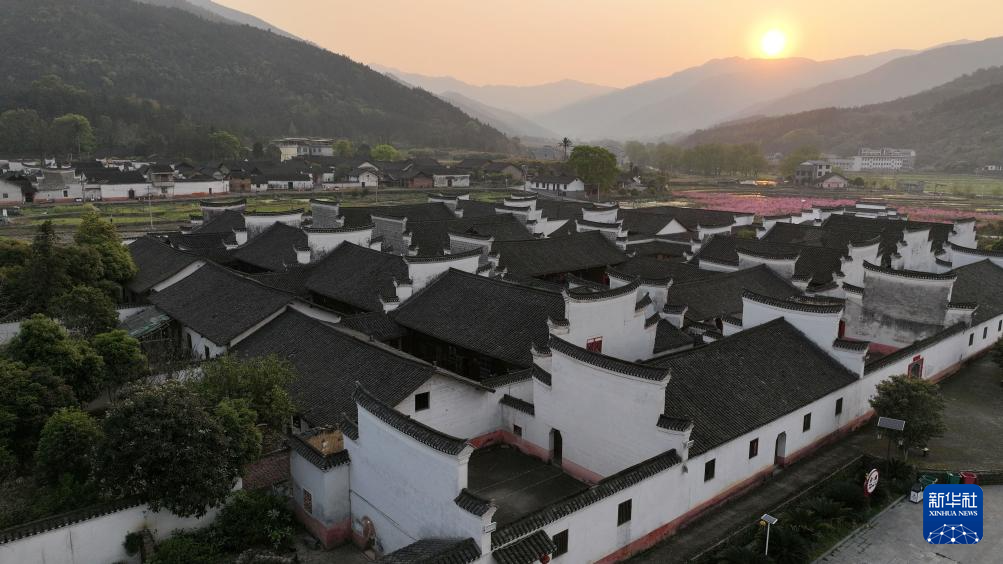
Yongzhou Jianyantou Zhoujia Dayuan Gujianzhuqun.
- Yongzhou Blood Duck: Tender duck meat infused with spices, perfect for those who enjoy bold flavors.
- Dong’an Chicken: A sweet and sour dish that captures the essence of Hunan cuisine.
- Ningyuan Stuffed Tofu: Crispy tofu filled with meat, offering a delightful contrast of textures.
- Yongzhou Lu Fen: Slippery rice noodles served in a rich broth, often topped with various condiments.
Accommodation Options
Yongzhou offers a range of accommodations, from budget hotels to more luxurious options. It’s recommended to stay in the city center for easy access to transport and local attractions. Popular hotels include:
- Yongzhou International Hotel: A comfortable option with modern amenities.
- Budget Hostels: For backpackers or travelers looking for economical choices, several hostels provide basic facilities at affordable rates.
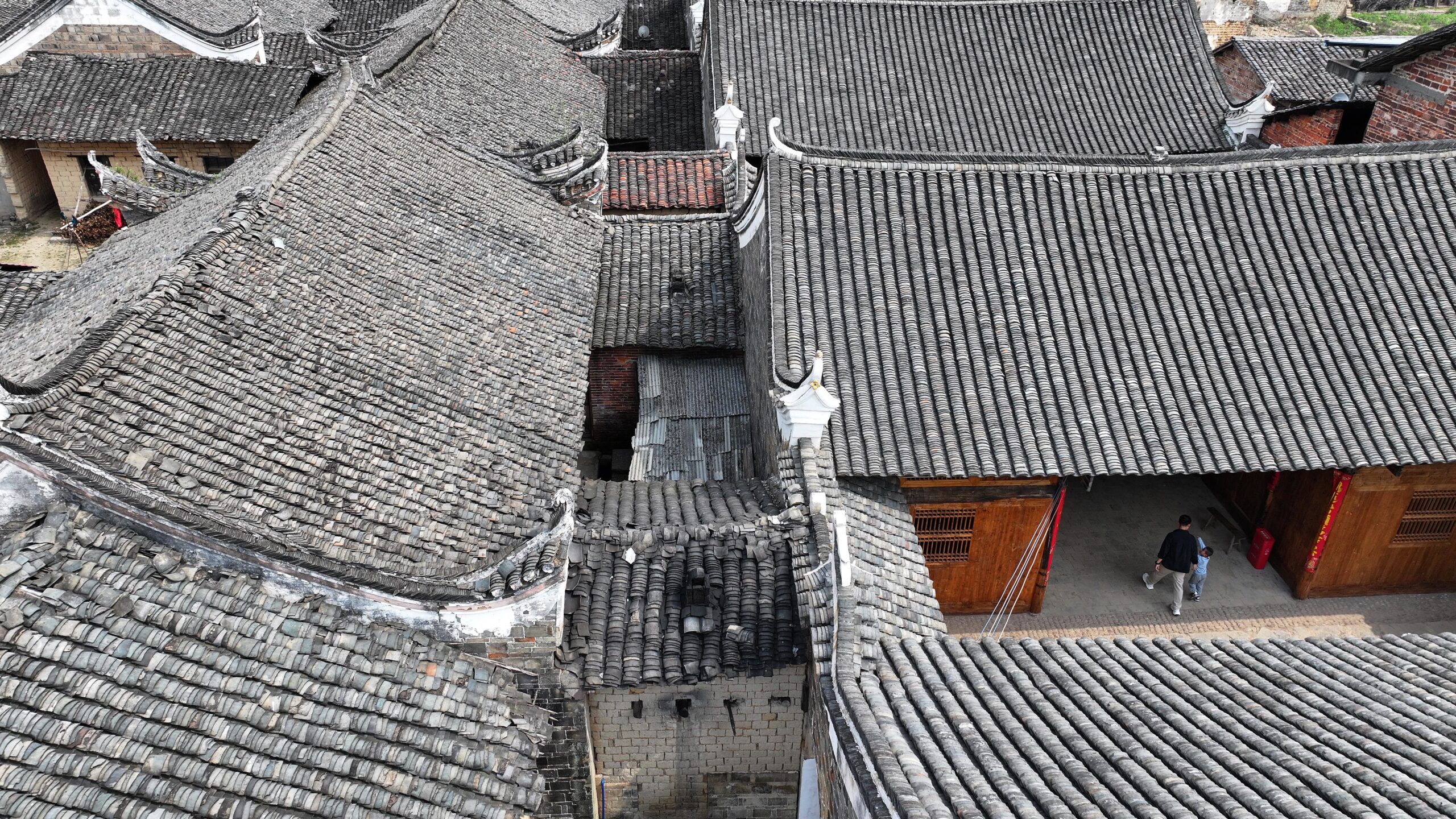
Yongzhou Jianyantou Zhoujia Dayuan Gujianzhuqun.
Tips for Visitors
- Photography: The mansion is a photographer’s paradise, so bring your camera to capture the stunning architecture and lush surroundings.
- Respect Local Customs: As you explore, be mindful of the local residents and their customs. It’s always appreciated to greet them politely.
- Wear Comfortable Shoes: The complex covers a wide area, and you will likely be walking on uneven surfaces, so comfortable footwear is a must.
Conclusion
A visit to Yongzhou Jianyantou Zhoujia Dayuan Gujianzhuqun promises to be a unique journey into China’s architectural and cultural heritage. With its rich history and stunning surroundings, it’s an experience that will linger in your memory long after you leave. Prepare well, and enjoy your exploration of this hidden treasure!
Tickets, Hours, and Booking
Visiting the Yongzhou Zhou Family Mansion (周家大院) is a delightful experience, and understanding the ticketing process is essential for a smooth trip. The ticket prices can vary, but generally, entrance fees range from 10 to 30 yuan. It’s worth noting that sometimes the site may not charge an entrance fee, especially during less busy periods.
Operating Hours
The mansion is open to visitors from 8:30 AM to 5:30 PM. To fully appreciate the intricate architecture and historical significance, it is recommended to allocate 1 to 2 hours for your visit.
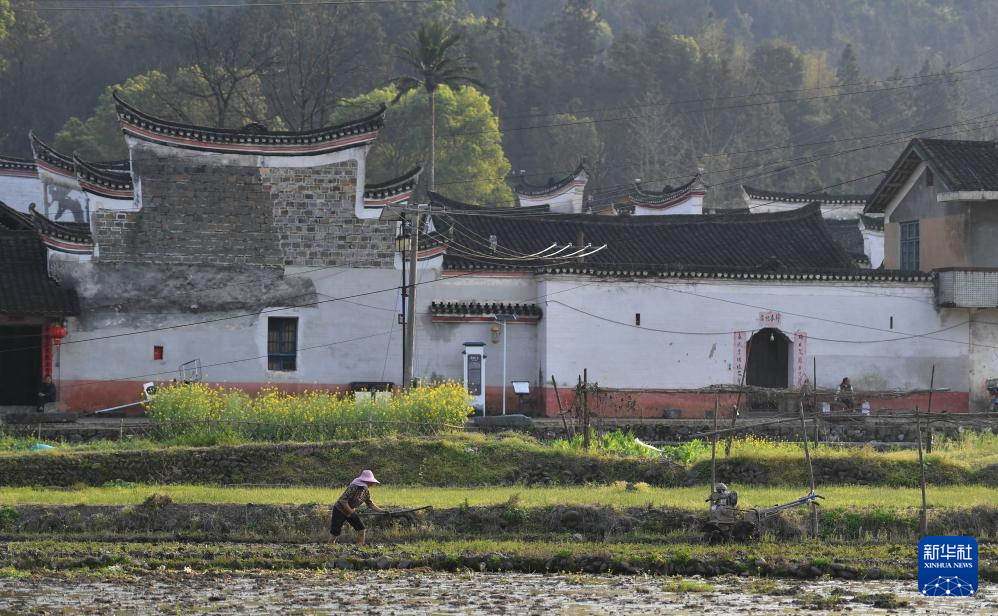
Yongzhou Jianyantou Zhoujia Dayuan Gujianzhuqun.
Ticket Purchase
Tickets can typically be purchased on-site. However, given the occasional lack of staff at the entrance, it’s wise to have some cash ready in case of a fee collection.
Getting There
The Zhou Family Mansion is located in Gan Yantou Village, approximately 18 kilometers southeast of the Fuxia Bridge Town in Yongzhou. There are public transportation options available, including buses from Yongzhou city, making it easily accessible for travelers.
Visitor Tips
- Check for Updates: As policies and fees can change, it’s advisable to check for any updates regarding ticket prices or operating hours before your visit.
- Explore the Surroundings: Besides the mansion, the lush surroundings and traditional village atmosphere offer additional exploration opportunities, making for a rich cultural experience.
By planning ahead and staying informed, your visit to the Yongzhou Zhou Family Mansion will be both enjoyable and hassle-free.
How to Get There
Traveling to the Yongzhou Zhou Family Mansion, also known as the Jianyantou Zhoujia Dayuan Gujianzhuqun, is a journey that takes you through the beautiful landscapes of Yongzhou in Hunan Province, China. Here’s how to navigate your way to this historical gem.
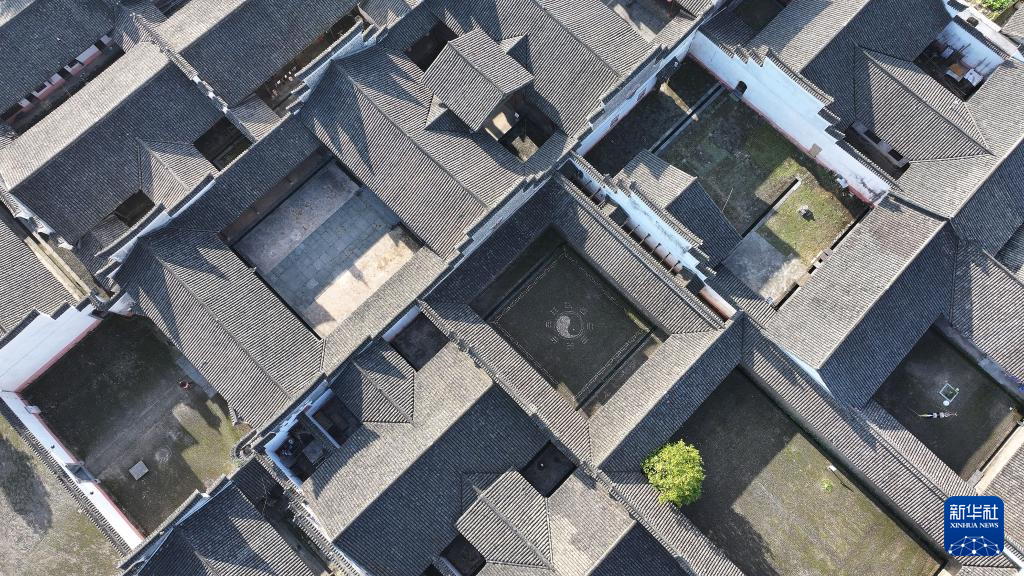
Yongzhou Jianyantou Zhoujia Dayuan Gujianzhuqun.
Getting There
By Air
The nearest airport is Yongzhou Lingling Airport, which offers flights connecting to major cities like Guangzhou and Shenzhen. From the airport, you can take a taxi or arrange for a private transfer to reach the Zhou Family Mansion, which is approximately 30 kilometers away.
By Train
For travelers coming from other parts of China, the Yongzhou Railway Station is a convenient option. It is well-connected with high-speed trains from cities like Guangzhou and Changsha. Once you arrive at the station, you can easily access local public transportation.
By Bus
If you prefer public transport, you can take a local bus from Yongzhou Railway Station. Bus route 306 (approximately 3 RMB) or route 301 (around 2 RMB) will take you to the “Shizheng Plaza” stop. This journey typically takes about an hour. From Shizheng Plaza, switch to a special bus line heading to the Zhou Family Mansion. Buses run every 30 minutes, and the fare is about 8 RMB, with a travel time of around 40 minutes.

Yongzhou Jianyantou Zhoujia Dayuan Gujianzhuqun.
By Car
Renting a car is an excellent option for those who wish to explore the surrounding areas at their own pace. Car rentals are available in Yongzhou, and driving to the Zhou Family Mansion offers the flexibility to stop at other historical sites along the way. Make sure to have a GPS or map handy, as road signs may not be in English.
Local Transportation
Once you arrive at the Zhou Family Mansion, the area is pedestrian-friendly. You can wander around the mansion and the surrounding village on foot, taking in the stunning architecture and serene environment. Be sure to explore the traditional alleyways and interact with the locals, who are known for their hospitality and knowledge of the area.
Tips for Travelers
- Travel Time: Plan for approximately 1-2 hours to fully appreciate the Zhou Family Mansion and its surroundings.
- Language: English is not widely spoken, so having a translation app or a phrasebook can be helpful.
- Cash: While some places accept mobile payments, it’s advisable to carry cash, as not all vendors may have card facilities.
Whether you’re a history enthusiast or simply looking to experience the charm of rural China, reaching the Zhou Family Mansion is a rewarding journey filled with cultural insights and beautiful scenery.
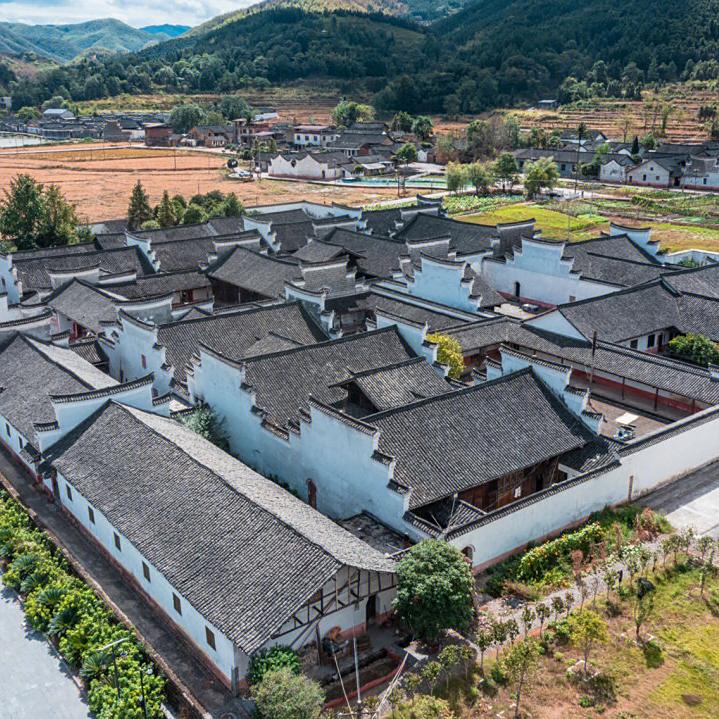
Yongzhou Jianyantou Zhoujia Dayuan Gujianzhuqun.
Local Cuisine and Accommodation
When visiting the Yongzhou Zhou Family Mansion, also known as Jianyantou Zhoujia Dayuan, indulge in the local culinary delights and find comfortable accommodations to enrich your experience in this historic area.
Culinary Delights
Yongzhou’s rich culinary scene offers a variety of mouth-watering dishes that reflect the local culture and agricultural abundance. Here are some must-try specialties during your visit:
-
Yongzhou Blood Duck (永州血鸭): This iconic dish features tender duck meat cooked with its blood, creating a spicy and savory flavor profile that pairs perfectly with rice.
-
Dong’an Chicken (东安鸡): Renowned for its unique sweet and sour taste, this dish is made from free-range chickens, marinated with a delightful blend of spices and served with a tangy sauce.
-
Ningyuan Stuffed Tofu (宁远釀豆腐): A local favorite, this dish consists of tofu filled with a rich meat mixture, pan-fried to a golden crisp before being simmered in a flavorful broth.
-
Yongzhou Braised Rice Noodles (永州卤粉): These silky rice noodles are served in a robust broth, combined with various toppings and spices, making for a hearty and satisfying meal.
Where to Stay
Accommodations in Yongzhou are varied, catering to different preferences and budgets. Here are some recommendations to consider:
-
Local Guesthouses: For an authentic experience, opt for a guesthouse in the nearby villages. Many are located in traditional homes, allowing you to immerse yourself in the local culture. The hospitality of the residents adds a personal touch to your stay.
-
Mid-range Hotels: The city of Yongzhou has several comfortable hotels that offer modern amenities while still providing a taste of local charm. Look for options near the Zhou Family Mansion to minimize travel time.
-
Luxury Accommodations: If you prefer a more upscale stay, consider hotels that provide additional amenities like spas and fine dining. These are typically located in the city center and offer easy access to major attractions.
-
Scenic Homestays: Some locations near the Zhou Family Mansion offer homestays that include meals made from local ingredients. This not only provides a cozy place to rest but also an opportunity to learn cooking techniques and local recipes.
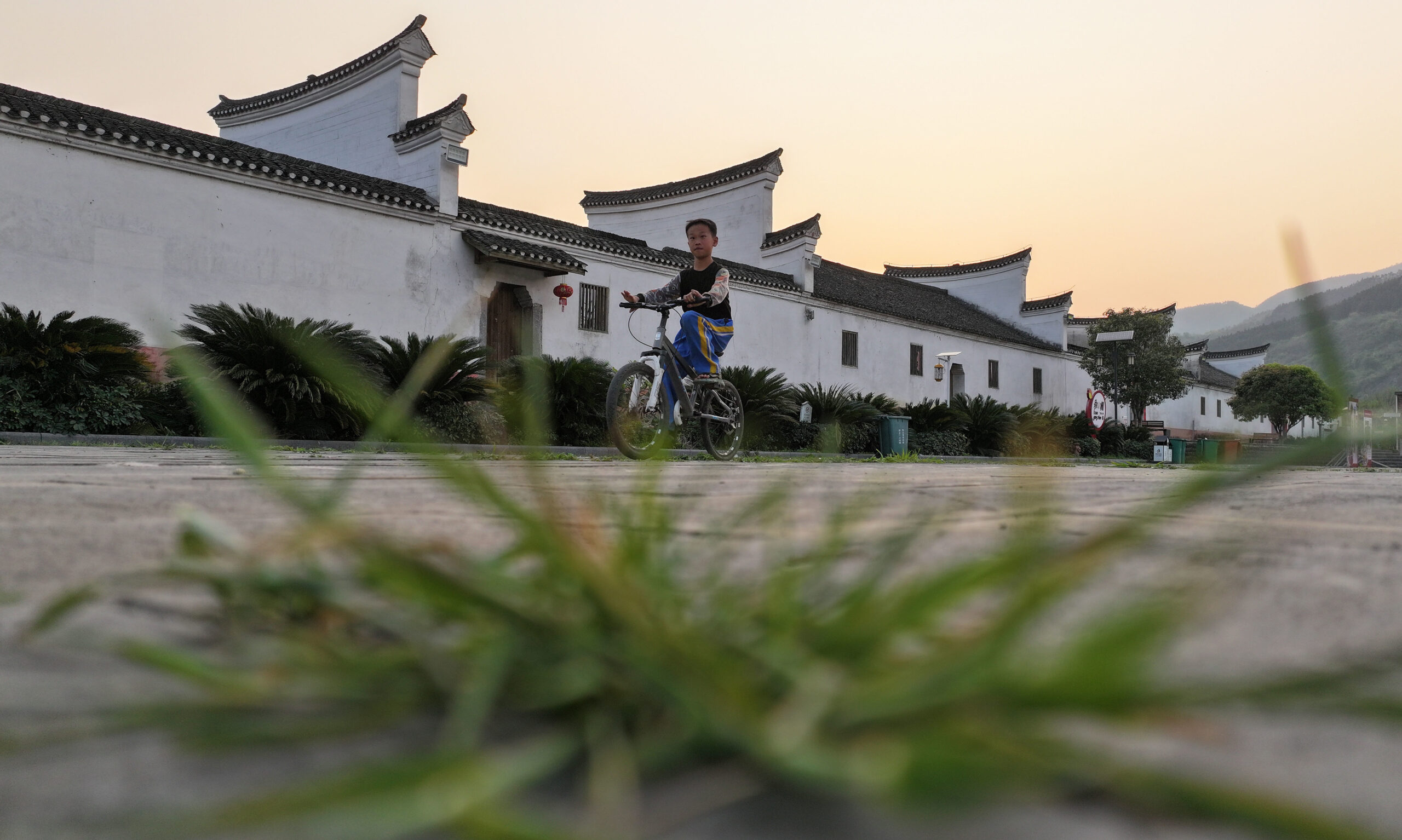
Yongzhou Jianyantou Zhoujia Dayuan Gujianzhuqun.
Whether you’re exploring the ancient architecture of Zhou Family Mansion or venturing into the picturesque countryside, the combination of delightful food and comfortable lodging will ensure a memorable visit to Yongzhou.
Frequently Asked Questions
Frequently Asked Questions about Yongzhou Jianyantou Zhoujia Dayuan Gujianzhuqun
1. What is the historical significance of Zhoujia Dayuan?
Zhoujia Dayuan, also known as the Zhou Family Courtyard, is a historical architectural complex located in Yongzhou, Hunan Province. Established in 1550 during the Ming Dynasty and completed in 1904 during the Qing Dynasty, it is recognized as a key cultural heritage site. The complex showcases traditional Chinese architecture and reflects the rich history of the Zhou family, descendants of the renowned Neo-Confucian scholar Zhou Dunyi.
2. How many buildings are in the Zhou Family Courtyard?
The courtyard consists of six major residential areas including the Old Courtyard, New Courtyard, Red Gate Tower, Black Gate Tower, Ziyan House, and the Four Major Family Courtyards. Collectively, they cover over 120 acres with more than 2000 rooms, making it one of the largest and most comprehensive traditional residential complexes in southern Hunan.
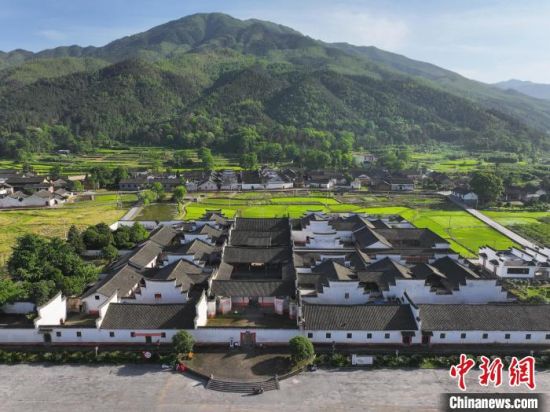
Yongzhou Jianyantou Zhoujia Dayuan Gujianzhuqun.
3. What are the opening hours and admission fees?
The Zhou Family Courtyard is open daily from 8:30 AM to 5:30 PM. Admission fees can vary, typically ranging from 10 to 30 RMB, depending on the time of year and visitor volume.
4. How do I get to the Zhou Family Courtyard?
To reach the Zhou Family Courtyard, you can take a bus from Yongzhou’s train station or city center. Buses run regularly to the nearby town of Fuchajiao, from where you can catch a local shuttle to the courtyard. The entire journey usually takes about 1-2 hours.
5. How much time should I allocate for visiting the courtyard?
A visit to Zhoujia Dayuan typically takes about 1 to 2 hours, allowing you ample time to explore the architecture, take photographs, and appreciate the historical significance of the site.
6. Are there any facilities available for visitors?
Yes, the site has been updated to include necessary visitor facilities such as restrooms and informational signage. Additionally, there are local vendors selling snacks and drinks nearby.
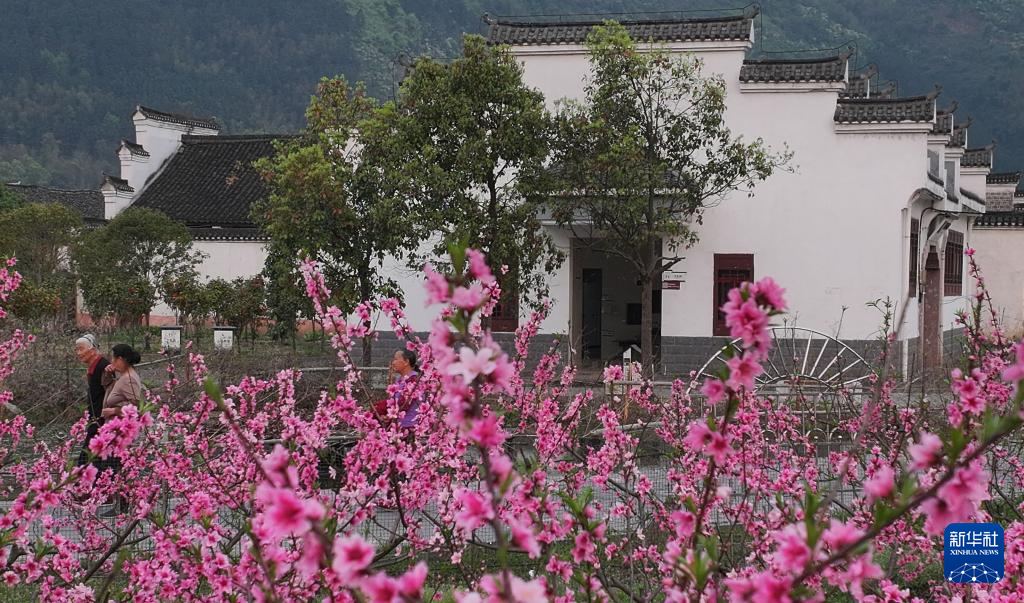
Yongzhou Jianyantou Zhoujia Dayuan Gujianzhuqun.
7. Is it possible to interact with local residents during my visit?
Absolutely! Many elderly residents still inhabit the Zhou Family Courtyard and are often happy to share stories about the history of the complex and their family traditions. Engaging with them can provide a deeper understanding of the cultural significance of the site.
8. What is the best time of year to visit the Zhou Family Courtyard?
The best times to visit are during spring (March to May) and autumn (September to November) when the weather is mild and the surrounding countryside is particularly picturesque. During these seasons, you can also enjoy local festivals and events that highlight the area’s cultural heritage.
Final Thoughts on Your Trip
Visiting the Yongzhou Jianyantou Zhoujia Dayuan Gujianzhuqun is not merely a trip to a historical site; it is an immersive journey into the rich tapestry of Chinese culture and tradition. This ancient architectural complex, with its impressive scale and intricate design, serves as a testament to the illustrious lineage of the Zhou family and their contributions to Chinese philosophy and governance.
As you wander through the meticulously preserved courtyards, you can almost hear the whispers of history echoing off the walls — tales of scholars, artisans, and generations of families who have called this place home. The harmonious blend of natural beauty and architectural grandeur offers a serene escape from the hustle and bustle of modern life, inviting visitors to reflect on the enduring legacy of their ancestors.

Yongzhou Jianyantou Zhoujia Dayuan Gujianzhuqun.
For those seeking to experience a lesser-known gem of China, the Zhou Family Mansion promises not only stunning visuals but also a deep connection to the past. Embrace the opportunity to explore this cultural treasure, where every corner tells a story, and every structure stands as a monument to the resilience and artistry of the human spirit. Your adventure in Yongzhou awaits, offering a unique perspective that enriches your understanding of China’s vast heritage.
